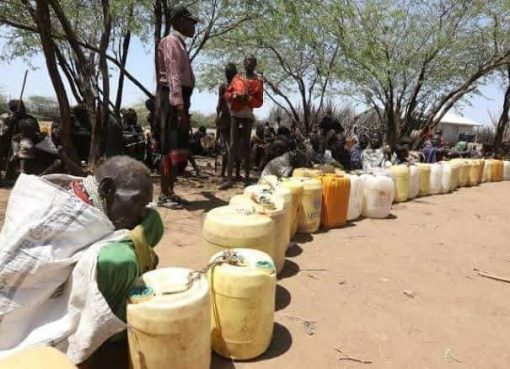Re-entry Policy, that seeks to enable teen mothers return to school after delivery, has seen girls in Kilifi County transition, from primary to secondary schools rising by 68 per cent.
Non-Governmental organizations in collaboration with the County Government has resulted into increase access to secondary education and higher learning institutions.

Kilifi County over the years has recorded low transition rates from primary to secondary schools and secondary to tertiary education as various researches reveal teen pregnancies to be a major cause.
Akili Dada in collaboration with Kilifi County’s Departments of Health, Education and Gender and Social Services completed a two-day Sexual Reproductive Health and Rights (SRHR) summit in Kilifi to close the implementation gaps of the Kenyan Government’s Re-entry policy for girls after teenage pregnancy in order to achieve a 100 per cent primary to secondary school transition in the region.
Speaking during the SRHR Summit at a Kilifi Hotel, County Reproductive Health Coordinator Kenneth Miriti told the media that the implementation of the policy has contributed to a high transition of girls from primary to secondary school considering the Kenyan’s government target of 100 per cent.
“We started off so badly at 26 per cent primary to secondary transition among girls and right now we are at 90 per cent as we race to achieve the Government’s 100 per cent transition target,” Miriti said.
He said the policy has revived shuttered dreams of the teenage mums by offering them another chance to pursue their education and enjoy their constitutional rights.
Miriti added that returning the teenage mums to school after delivery has decreased their chances of getting pregnant again hence contributing to the notable reduction of unwanted teenage pregnancies in the county.
“As the county, we are headed to the right direction and I can say the policy is a positive trajectory to addressing the issues that contribute to early pregnancies among our girls. We have grouped the young girls to educate them on the importance of going back to school and so far, there is a significant development even in the way the community is responding,” Miriti added.
Speaking during the Summit, the County Director of Gender and Social Services Mwangome Shumaa said returning teenage mums to school after delivery is a move that has offered the girls and their abusers another chance to rectify the mistakes they previously made.
He said the county prides on the move and has since recorded immense development in transitioning from primary to secondary school and secondary to higher learning institutions.
“Currently there are a lot of developments that have emerged from this policy of returning teenage mums to schools. I know a lot of school going girls who were impregnated in primary school, some in secondary schools but right now are continuing with their education in secondary school and tertiary institutions,” Mwangome said.
He urged female scholars from the affected communities to go back to their roots in order to offer support to the affected girls not only financially but also psychologically, insisting that most of the girls only need to be directed to the right paths by their role models.
Addressing the media during the summit, Akili Dada’s Partnership and Advocacy Lead Kanga Rasi acknowledged the stakeholders that have walked with through the journey of ensuring the girls pursue their rightful education despite having left school due to early pregnancies.
Kanga said the organization’s partnership with the county ministries will place the adolescent girls, young mothers, gatekeepers, teachers, parents, community, government officials and other stakeholders at a position to share roles in achieving the 100 per cent transition as required with the Government’s Re-Entry policy target in the counties.
“We have involved the concerned stakeholders to participate in this policy by educating them so that they are able to know which roles they are supposed to play in making sure that the girls return to school after pregnancy and delivery. Without proper education, the girls can’t achieve a better living,” Kanga said.
Akili Dada is so far implementing the Re-Entry Policy in several counties namely Kilifi, Kwale, Turkana, Kajiado, Samburu and Nairobi.
By Treeza Auma and Harrison Yeri





